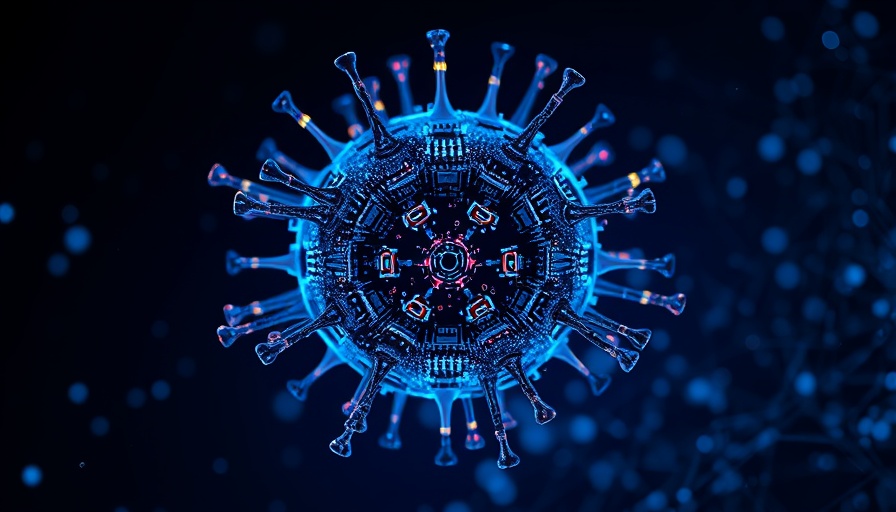
Revolutionizing Health: AI's Role in Combatting Cancer
Artificial Intelligence (AI) is quickly transforming various sectors, but its most critical application might be in healthcare. Recent breakthroughs reveal how AI can facilitate the rapid design of proteins aimed at reducing cancer and antibiotic resistance. This development not only holds promise for treating complex diseases but also sheds light on the potential of AI as a powerful tool in medical research.
How Does AI Create Proteins in Seconds?
Traditionally, the process of protein design required significant time and effort, often taking months or years to refine. However, AI algorithms can analyze extensive biological data and simulate interactions between proteins and biological systems in mere seconds. By inputting various parameters, researchers can receive optimized protein designs that have increased efficacy against cancer cells and bacterial infections.
The Importance of Targeted Proteins in Oncology
Cancer treatment has long been plagued by issues of specificity and side effects. Targeted proteins, designed through AI, could potentially mitigate these challenges. These proteins not only enhance the effectiveness of therapies but can also minimize collateral damage to healthy tissues, improving patient outcomes and reducing recovery times.
Addressing Antibiotic Resistance with Innovative Solutions
Antibiotic resistance is a growing global health crisis. Current treatments are becoming increasingly ineffective against resistant strains of bacteria. AI’s capability to design new proteins could revolutionize the development of novel antibiotics, providing a fresh arsenal in the fight against these infections.
Industry Implications for CEOs and Business Professionals
For business leaders, understanding these advancements is critical. The integration of AI in drug development can lead to reduced timeframes and costs, offering companies a competitive edge. Strategic investments in health tech innovations can also enhance your company's reputation, aligning with global efforts to combat pressing health issues.
Historical Context: The Evolution of AI in Medicine
AI’s application in medicine is not entirely new. Over the past two decades, technologies such as machine learning have gained traction in diagnosing diseases. However, the focus on protein design marks a pivotal evolution, one that hints at a future where AI plays an indispensable role in personalized medicine.
Future Predictions: The Road Ahead for AI in Healthcare
The future of healthcare is undoubtedly intertwined with AI. By 2030, we could see AI-generated drugs that are specifically tailored to individual genetic profiles, effectively personalizing treatments. This shift could redefine countless health care practices, leading to more effective and efficient delivery of health services.
Challenges and Counterarguments to Consider
Despite the potential benefits, the reliance on AI in protein design is not without criticism. Ethical considerations around data privacy and the transparency of AI algorithms raise questions. As leaders, being conscious of these debates is essential for responsible application and incorporation of AI into healthcare settings.
Empowering Decision Making Through Knowledge
CFOs and business strategists should recognize the implications of AI developments in drug design. Understanding these innovations can lead to informed investment decisions and strategic partnerships with biotech firms, enhancing market competitiveness.
Taking Action: Why You Should Stay Informed
With the rapid developments in AI and health tech, staying updated is not merely beneficial; it’s imperative. Regularly digesting new research findings and technological advancements is essential for strategic leaders wanting to leverage AI’s capabilities in healthcare and beyond.
 Add Row
Add Row  Add
Add 




 Add Row
Add Row  Add
Add 

Write A Comment